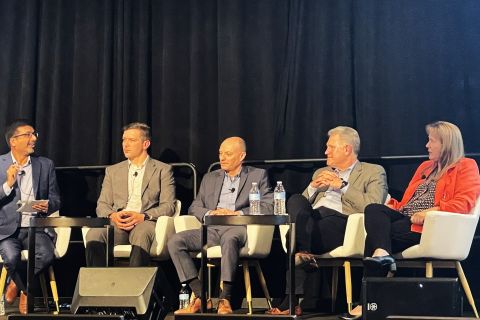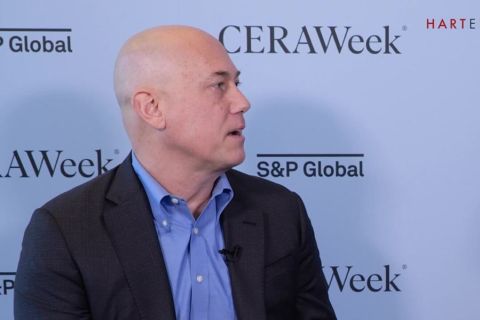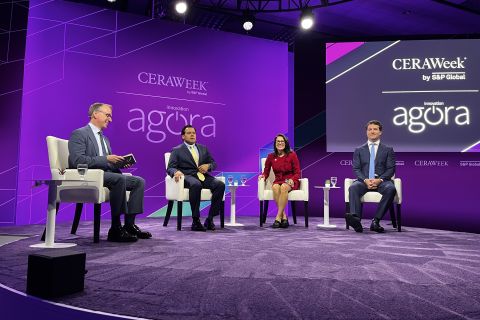Nigeria is poised to expand its current oil production of about 2 million barrels a day by an additional 3 million by 2008, president Olusegun Obasango said while in Houston recently. "Can these targets be accommodated within an OPEC quota? Yes. We have made our case to OPEC and it has been noted, but remains to be acted on. I have no doubt, especially if some people will be producing more and some people producing less," he said at the James A. Baker III Institute at Rice University. Nigeria is one of the top five suppliers of oil to the U.S. and will be a key supplier of liquefied natural gas (LNG) as well, as new LNG facilities come online through the rest of this decade. Cooperation between Washington and Abuja is deep and growing, said Obasango, who was re-elected in April to a second four-year term as president of the country's 126 million people. Nigeria has embraced the business and contract transparency initiative, which promotes an open legal framework and anti-corruption laws and is under way in the extractive industries. "If companies obey the laws of the U.S. and of Nigeria, that should be enough," he said. "Our laws address the person who gives and the person who takes-and the person who knows [about it] but doesn't say he knows." Obasango spoke at length about the many problems confronting his and all African nations, and the role that income from crude oil and other trade might play. He said Africa has been "unstable and marginalized for far too long." Today its leaders are grappling with development and poverty reduction. "No African country is beyond redemption. Africa can rise again, but we need the help of the rest of the world. It will help us only when we help ourselves." He said he hoped Nigeria, which evenly consists of Christians and Muslims, would become a model of diversity, moderation and "multi-confessional" culture.
Recommended Reading
Haynesville’s Harsh Drilling Conditions Forge Tougher Tech
2024-04-10 - The Haynesville Shale’s high temperatures and tough rock have caused drillers to evolve, advancing technology that benefits the rest of the industry, experts said.
Fracturing’s Geometry Test
2024-02-12 - During SPE’s Hydraulic Fracturing Technical Conference, industry experts looked for answers to their biggest test – fracture geometry.
AVEVA: Immersive Tech, Augmented Reality and What’s New in the Cloud
2024-04-15 - Rob McGreevy, AVEVA’s chief product officer, talks about technology advancements that give employees on the job training without any of the risks.
CERAWeek: AI, Energy Industry Meet at Scary but Exciting Crossroads
2024-03-19 - From optimizing assets to enabling interoperability, digital technology works best through collaboration.
CERAWeek: Large Language Models Fuel Industry-wide Productivity
2024-03-21 - AI experts promote the generative advantage of using AI to handle busywork while people focus on innovations.





